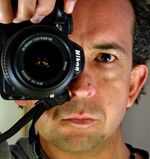What can we learn about code, software systems and their development if we look at them through the lens of living organisms, humans and society? For all the ways in which we frame software — products, buildings, mathematics, etc. — life is often overlooked.
We might sometimes talk about organic architecture, and increasingly we care about individuals and interactions, but what can we learn more directly from systems that live and die literally rather than figuratively? After all, software is designed — no matter what we may think of its design — life is not; software is a utilitarian artefact, life is not; software is formal, life is not. These differences can help us see new ways of thinking about and developing software, and prepare us for the challenges we face now and in future with machine learning and digitalisation.
So, what is the secret to life? This talk doesn‘t propose to answer this age-old question in a way that would necessarily satisfy philosophers, theologians or self-help books and videos, but there‘s something here for software professionals.

Kevlin Henney is an independent consultant, trainer, reviewer and writer based in the UK. His development interests are in programming, people and practice. He has been a columnist for various magazines and web sites, a contributor to open source software and a member of more committees than is probably healthy (it has been said that „a committee is a cul-de-sac down which ideas are lured and then quietly strangled“). He is co-author of two volumes in the Pattern-Oriented Software Architecture series and editor of 97 Things Every Programmer Should Know and the forthcoming 97 Things Every Java Programmer Should Know.